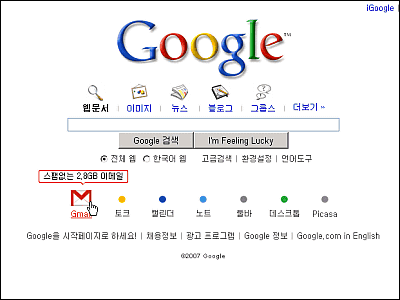'Bilingual baby name finder' review that allows you to easily find 'bilingual names' in various languages

Bilingual baby name finder
https://mixedname.com/
When you access the above URL, a page like this will be displayed.
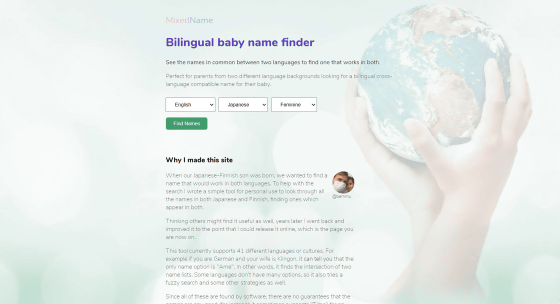
Three pull-down menus are lined up around the center of the page, and select the language for which you want to check the bilingual name from the two left...
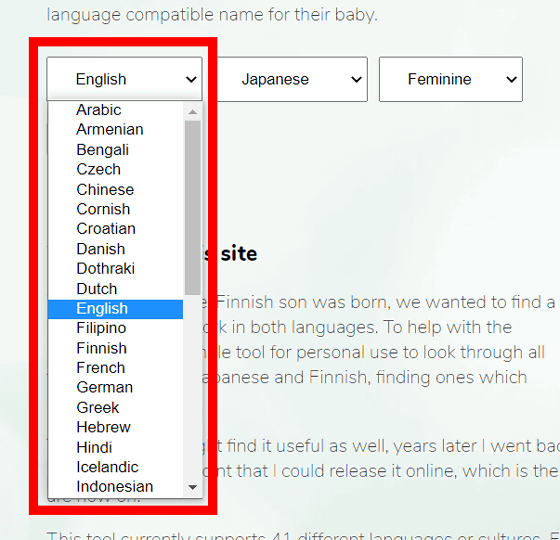
Select either 'Feminine', 'Masculine', or 'Both' from the rightmost menu.
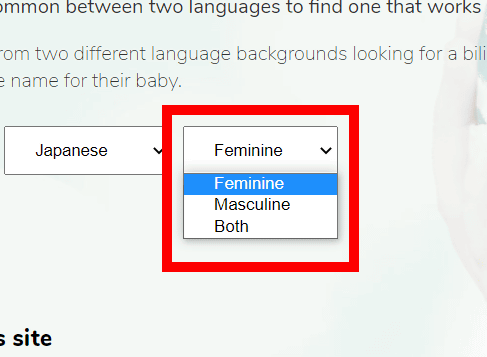
First, search for 'English', 'Japanese' and 'Feminine'. Click 'Find Names'.
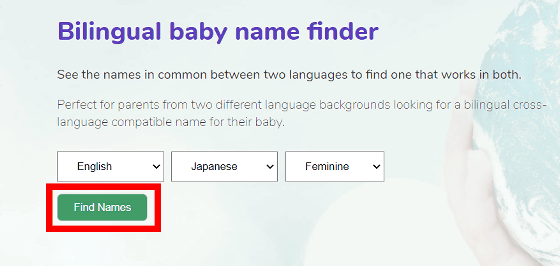
Then, 'English-Japanese names for girls' was displayed, and bilingual names for girls in English and Japanese were displayed. Bilingual names are the overlapping parts of 3994 English names and 768 Japanese names.
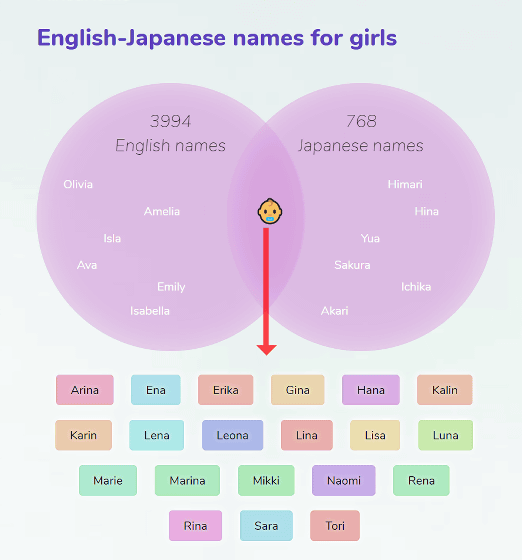
Looking at the 20 name candidates, you can see 'Arina', 'Ena', 'Naomi', etc., but 'Gina' is not Japanese impression. However, on the whole, the names of sounds that are common to both English and Japanese are listed.
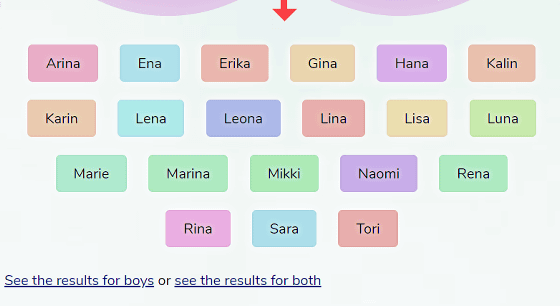
Furthermore, when I look it up with female names in Korean and Japanese...
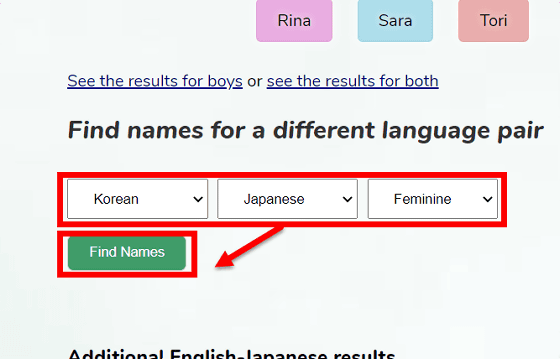
The number of candidates has dropped dramatically to just seven.
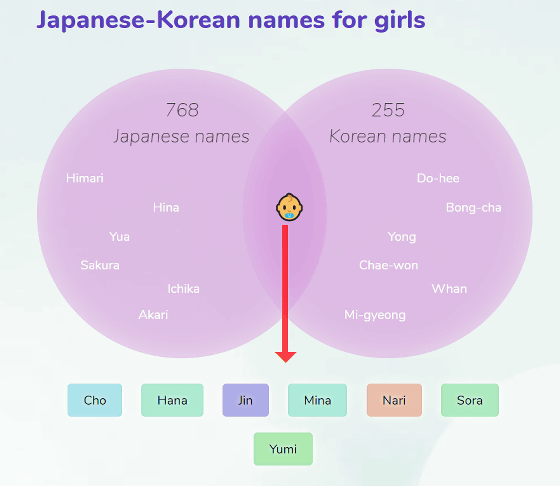
When I searched by masculine name, it was even further reduced to just two.
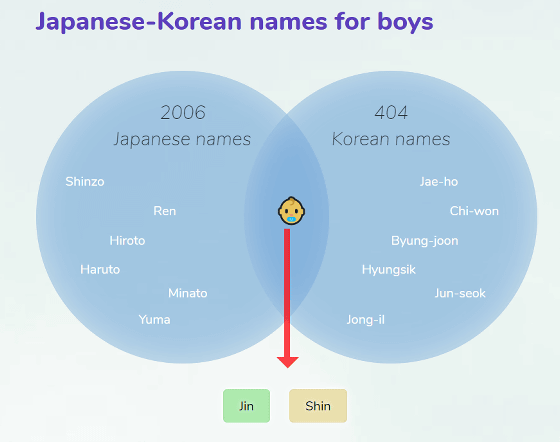
The number of candidates for bilingual names fluctuated significantly depending on the language selected, with 13 for Italian and Japanese. Also, according to
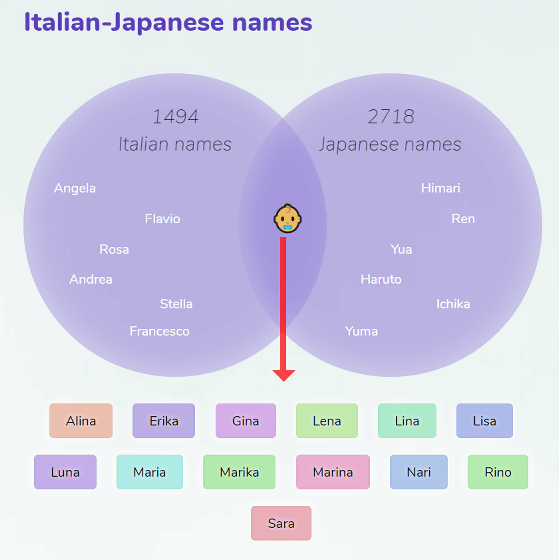
If you scroll the screen, you can see the words that are used in two countries, such as 'Italian name with Japanese meaning', which is different from the name. 'Gian (case)', 'Zuan (design)', 'Kara (shell)', etc., cannot be used directly as names, but it seems to be helpful.
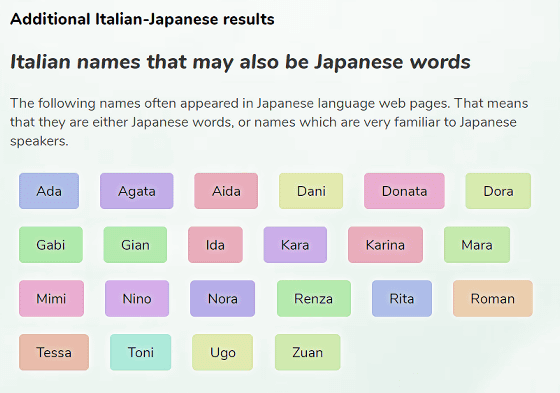
There is also the opposite, 'Japanese name with Italian meaning'. You can see that 'Lei' is her, 'Mila' is the plural number 1000, and 'Sala' is a room.

Italian names often end with '-na', so 'Italian suffix matchs' showed names ending with '-na' in both Italian and Japanese.
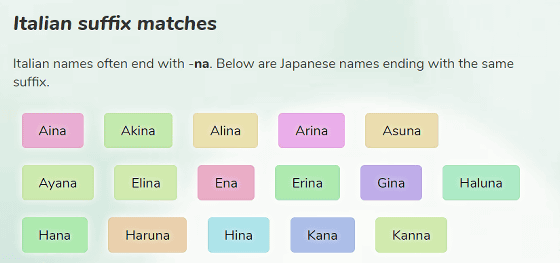
'Fuzzy match' is not a perfect match, it's a one-character difference. There are many lines with the same vowels, such as 'Agata-Arata'.
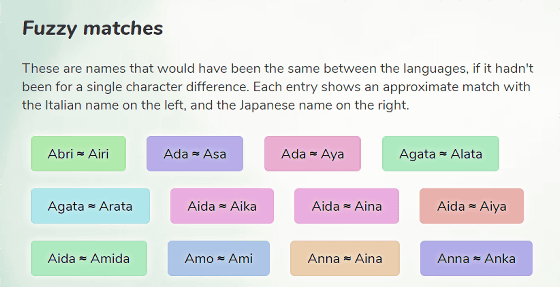
Related Posts:
in Review, Posted by darkhorse_log


